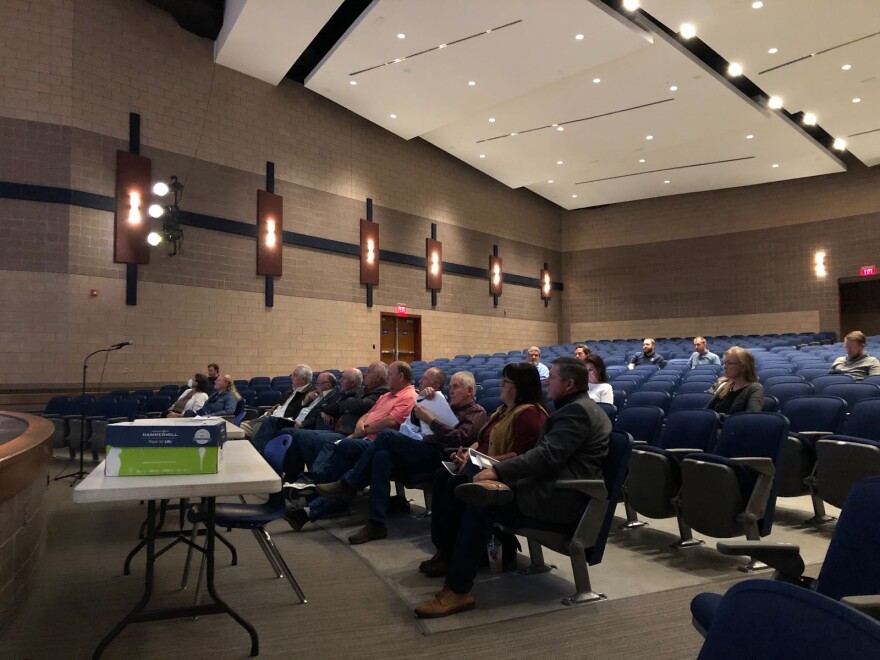Some rural Utahns want each county represented by one state Senate seat. The problem is: that’s illegal under the U.S. Constitution.
Right now, state Senate districts must represent about the same number of people, so some districts with sparse populations can encompass several counties.
During a legislative Redistricting Committee meeting in Richfield last month, local officials urged lawmakers to make state Senate districts more like U.S. Senate districts where each state has two senators.
“That was to create a balance so people would have a voice, whether they lived in rural areas or whether they lived in the big urban areas,” said Juab County Commissioner Richard Hansen. “We have 29 counties. We have 29 senators.”
Courts have ruled that, unless the population is roughly the same in each county, that proposal violates the 14th Amendment of the U.S. Constitution, which requires equal protection under the law.
“If the Legislature drew districts to represent geography like counties rather than population, the map would not be equally applied to the citizens of the state,” said Michael Curtis with the Office of Legislative Research and General Counsel. “So, for example, the smallest county in Utah has less than 1,000people, and the largest county has more than a million. So simply put, the Constitution prohibits the Legislature from saying that 1,000is the same as a million.”
That doesn’t apply to the U.S. Senate, Curtis added, because the U.S. Constitution explicitly says that each state will have two seats.
Curtis said it would be hard to overturn legal precedent that requires state legislative districts to represent an equal number of residents. But some rural Utahns said the state should try.
“It's time for a brave and courageous and talented men and women to take on the challenge and figure out a way to give adequate representation to rural Utah and quit hanging your hat on the legal mumbo jumbo gobbledy gook,” said Piute County Commissioner Darin Bushman.
However, the Legislature doesn’t seem too keen on taking up that battle. A bill that would have created one House district for each county was voted down in its first committee hearing earlier this year.
Creating Senate districts for each county would dramatically increase the number of Republicans in the Senate. But the Republican supermajority in the state Legislature doesn’t need more Senate seats. Just six out of 29 seats are occupied by Democrats. Across the House and Senate, Republicans control 78% of the seats.
But House Speaker Brad Wilson, R-Kaysville, told reporters Wednesday that rural representation is top of mind for him. On Monday, former Rep. Rob Bishop, R-UT, dramatically quit the Independent Redistricting Commission, which advises the Legislature on drawing district maps. Bishop said the draft Congressional maps didn’t give rural Utah enough of a voice.
Wilson said Wednesday “We are a state that is largely still, in terms of landmass, a rural state and there’s a lot of importance and benefits to this state of having the members of our congressional delegation all understand, and working for rural Utah, back in Congress.”
The Independent Redistricting Commission is set to present its maps to the legislative Redistricting Committee next week. The full Legislature is expected to hold a special session later this month to finalize the maps.






